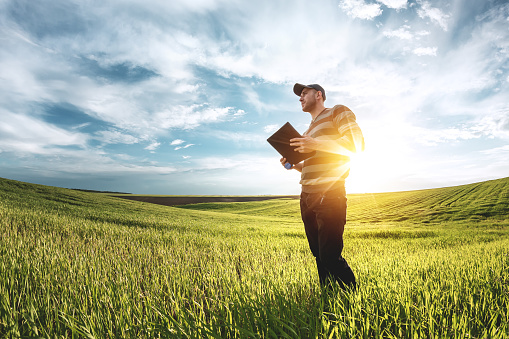Creating The First-Ever Digital Farmer Registry In Lesotho

The data collected online will be used to build the first-ever Lesotho National Farmer Registry, as part of a project funded by the United Nations Food and Agriculture Organization (FAO) and done in collaboration with the Ministry of Agriculture and Food Security.
To begin with, the government failed to create a database of all of the country’s farms, as with no data, it is impossible to make educated decisions,’ The Ministry of Agriculture and Food Security’s National Project Coordinator, Maoala Khesa, said. Because of the new electronic registration, we’ll be able to find out who does what and where they do it. We will be able to determine how many farmers work in the substance farming, piggery, dairy, and other agricultural commodities value chains due to this registration.
The data-gathering technologies currently in use were created by government stakeholders. Farmers’ registration mainly covers their primary farming activities, animal ownership, and demographic information.
“LIAMIS” [i.e. The Lesotho Integrated Agriculture Management Information System] is intended to provide a cost-effective mechanism for farmers to access various agricultural services while also developing a database of all farmers for improved intervention planning and targeting.
Farmer Registry’s main purpose of, and how is it crucial?
It is a web-based platform that provides verified agricultural data and guaranteeing that government assistance is only given to authorized farmers.
When extension workers have access to the internet, they will register users and transfer their data to a national server.
Interventions that are effective
Around ten thousand farmers have been enrolled in the two districts that have been covered; the objective is to expand registrations to the remaining eight regions.
The National Project Coordinator revealed that some of those receiving assistance are not farmers, despite the fact that real farmers were not receiving their services. They’ve been taking care of everyone. Planning and targeting will be right; assistance will be delivered directly to the designated farmers, and the exact amount of subsidies required will be made available.
Who’s a farmer
Someone who works on a farm is known as a farmer. The system will create GPS coordinates for the farmer’s land and fields based on who qualifies as a farmer.
Connecting to other systems
An E-voucher system, Routine food security monitoring, E-extension services, agricultural mechanization, and real-time reporting will be possible once the system is completed.
The Ministry of Agriculture and Food Security will be able to collaborate with farmers and receive questions on disease surveillance in communities, enabling early detection and pest infestations, such as insect outbreaks, can be better managed.



Join The Discussion